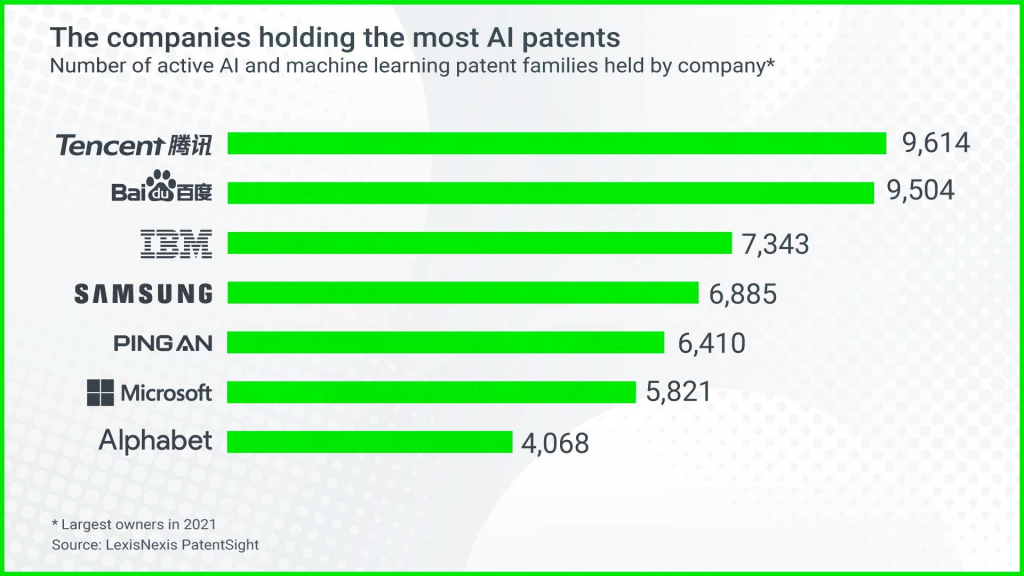ChatGPT is the fastest growing consumer application of all time, taking just five days to reach one million users and just two months to reach 100 million users.
The US$10 billion investment by Microsoft in ChatGPT’s parent, OpenAI, certainly set the tone in the battle for AI supremacy and pitted Microsoft against Google in the AI arms race.

Global VP, Innovation from NRI’s Velrada Business, Dan Hookham says the size of the AI prize could be $1.5 trillion by 2030.
The size is enormous. If you think about it, if you’re able to do something three times faster than your competitor, and can make AI much more accessible than your competitor, then you’re going to win that particular market.

One area that is becoming hotly contested is Google’s traditional stranglehold over internet searches.
Google’s parent, Alphabet, generates almost 60% of its revenue from search-related advertising.

There are currently 5.6 billion searches on Google every day, and only 900 million searches on Bing.
However, Hookham says that with 1.5 billion people using Windows and 1.3 billion using Microsoft Office on a daily basis, a better search experience on Bing will keep people within the Microsoft ecosystem.
I wouldn’t necessarily say it’s a search challenge, as in who has the best search algorithm but it’s about the accessibility of search and the availability.

The artificial intelligence market is on a supercharged growth trajectory, with growth predicted at a compound annual growth rate of 37.3% from 2023 to 2030.

The sectors that stand to benefit most from the proliferation of AI include transport, security, health and finance.
“AI is already used heavily in financial services, that’s where the biggest revenue is made. But people like pharmaceuticals, biomedical companies, robotics companies, they are all using AI to accelerate the manufacturing process,” said Mr Hookham.

Oxford Economics economist Alex Holmes says modelling by the OECD indicates that the types of jobs that will be replaced by AI aren’t constrained to low-skilled workers focused on highly repetitive tasks.
“If you’d asked me a year ago, the kind of job that can’t be replaced would be occupations like doctors, lawyers and teachers, but even these professional jobs are under threat from AI,” said Alex Holmes.

The encouraging data produced by the World Economic Forum is that on a net basis, AI will create more jobs than it destroys.
“There is inevitably going to be a period of structural unemployment. This raises a policy conundrum for policymakers. Do they try to tax and redistribute the gains from the AI winners to the losers?” said Mr Holmes.

The AI arms race isn’t contained to American big tech, with companies from all around the world jostling for pole position.
The number of AI technology patents is rapidly growing, with two Chinese companies leading the charge with almost 20,000 patents between them.

The sector is also undergoing significant M&A activity, fuelled by high-profile, multi-billion dollar acquisitions.
Hookham says the size of the deals are getting bigger as larger companies either seek to bring new technology into their product suite, or prevent competitors from gaining an edge.
“Much of the time, they are seeing an opportunity to bring operational benefits in-house, but they are also making sure their peers don’t get their hands on technology that they will ultimately have to compete with,” said Mr Hookham.

However, the proliferation of AI has come with a warning from tech heavyweights including Elon Musk and Apple’s Steve Wozniak that the world should consider hitting the pause button.
Elon Musk and thousands of others signed a letter in April demanding a six-month pause on the development of AI systems more powerful than that of GPT-4.
“If you think about the human race in general, over the number of years that we’ve been on the planet, we have done some pretty, pretty clever things and some pretty disastrous things,” said Mr Hookham.





